-
- USA/Canada 1-800-285-2726
- Australia (02) 8006 4411
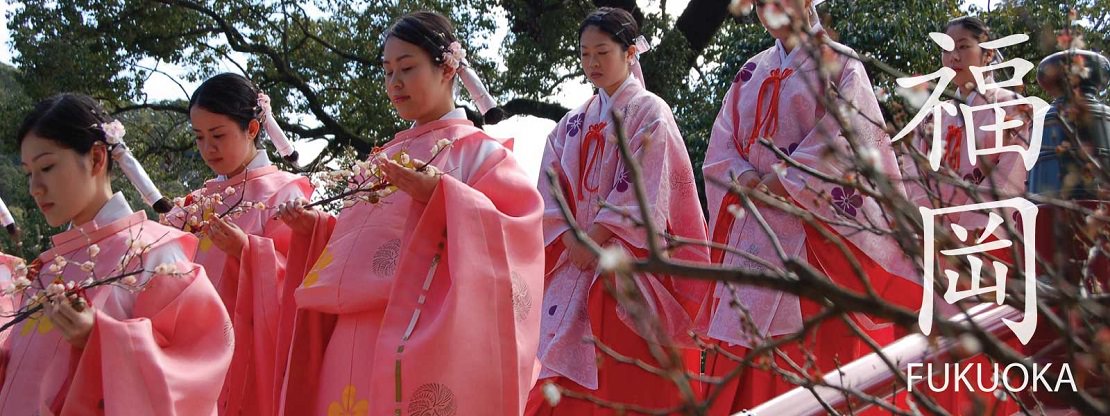
Region: Kyushu
Capital: Fukuoka
Population (approx.): 5.049 million
Area: 1,919 sq miles
Area Rank: 29
Center of administration and economy; wild nightlife and endless shopping
Major international trading port since the 19th century
Popular summer destination for its sandy beaches
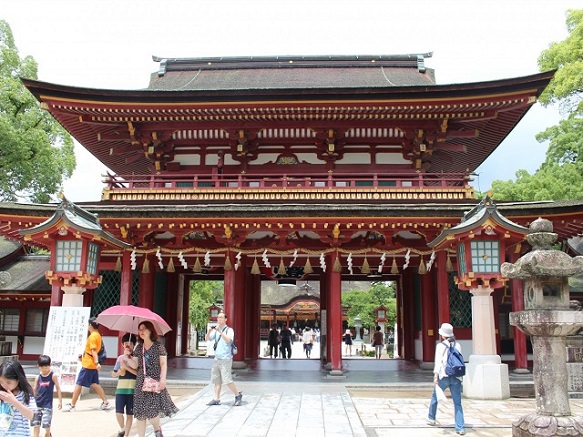
Fukuoka Prefecture is located in the Kyushu region and touches the ocean on three sides. The city of Dazaifu in Fukuoka is home to Dazaifu Tenmangu Shrine, one of the most important of the hundreds of Tenmangu Shrines. The shrine is lined with various shops that lead to the shrine’s entrance, which when visitors reach will approach a pond that was built in the shape of the Japanese character for “heart”. The two arched bridges that crosses this pond represent the past, present, and future. Tenmangu is dedicated to the spirit of Sugawara Michizane, a great scholar, poet and politician of the Heian Period. He was exiled from Kyoto by his biggest political rival Fujiwara clan and died in where Dazaifu Tenmangu was built. Because of his intelligence he was called the God of Education and today, many students come to pray for their success during entrance exam season. Moji in Fukuoka is a town of historical significance. Moji Port was a major international trading port since the 19th century, and although most major port activities have moved to a newer port, Moji Port is still very popular among tourists. The building itself has a very Western look as well as the Moji Customs Building nearby. This customs building is now an art gallery but still keeps its western red brick look.
Popular shrine for students to pray during entrance exam season
Beautiful tunnel formed by cascading wisteria flowers
One of Kyushu's greatest kabuki theaters; gorgeous mix of Japanese and Western styles
Wide canals of Fukuoka famous for its donkobune cruises
Gorgeous four-tiered, six stories donjon castle of Fukuoka
Large shopping and entertainment complex in Fukuoka
Leisure park with flower gardens, amusement park, petting zoo and more
Mirror Sail; Observation decks, restaurants, shops within the tower
Aquatic life of Fukushima in large panoramic water tanks
Top port in the number of income passengers, value of trade and handling in Japan
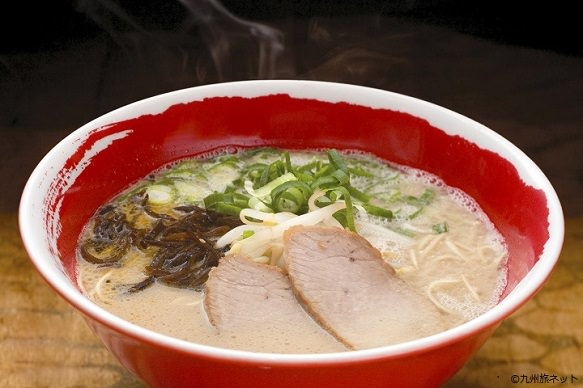
Fukuoka has many local dishes and is famous for its culinary culture. It is perhaps best known for its Hakata Tonkotsu Ramen. Today the pork bone-based soup’s rich creamy taste is a popular choice of ramen all over the world.
Another Fukuoka specialty is the “motsunabe”, a type of hot pot with beef or pork tripe and other kinds of offal. The motsu is cooked with vegetables in a soy or miso based soup and enjoyed more commonly in the cold winter months.
Fukuoka is a major producer of “mentaiko”, Pollock roe. It is a spicier form of tarako, having been flavored with chili instead of just salted. Mentaiko is enjoyed with a bowl of rice, in an onigiri, mixed with spaghetti and other dishes, or simply as a side dish with alcohol.
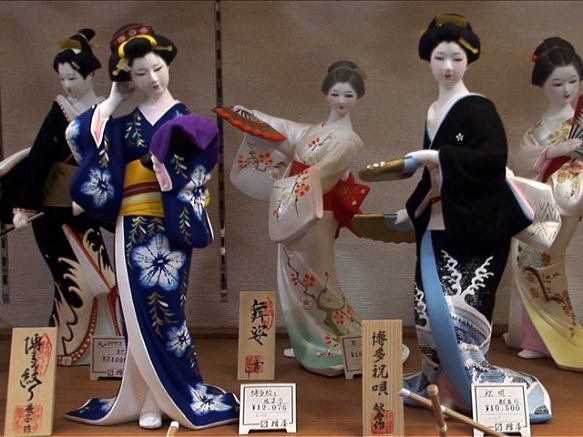
Hakata Ningyo (Hakata Dolls) are designated as Fukuoka's Intangible Cultural Heritage. It is said to have originated back in the 17th century when a doll maker presented the doll the the feudal lord at the time, Kuroda Nagamasa. The dolls are created from clay, fired, then painted with clay paint. Crafting Hakata Ningyo requires a great amount of skill that takes years to master. The Hakata Ningyo is sculpted from clay using a knife and spatula and details are added by paint. To keep the doll itself from being too heavy, the insides are hollowed out. Hakata Ningyo once gained great popularity after the war time when Americans brought back these dolls as souvenirs to the states.
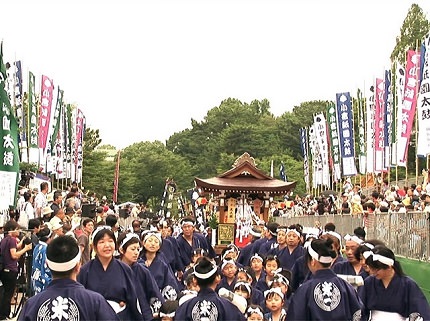
Kokura Gion Festival, also known as the "Gion of Drums" is a major drum festival held in Kitakyushu City, Fukuoka every July. The festival started in the Edo Period as a way to celebrate the end of a rainy season. The new season was celebrated as the people prayed for good harvest for that year. The festival includes a 3 day taiko tournament in which drum performances are held as the drums are paraded through the streets on floats.